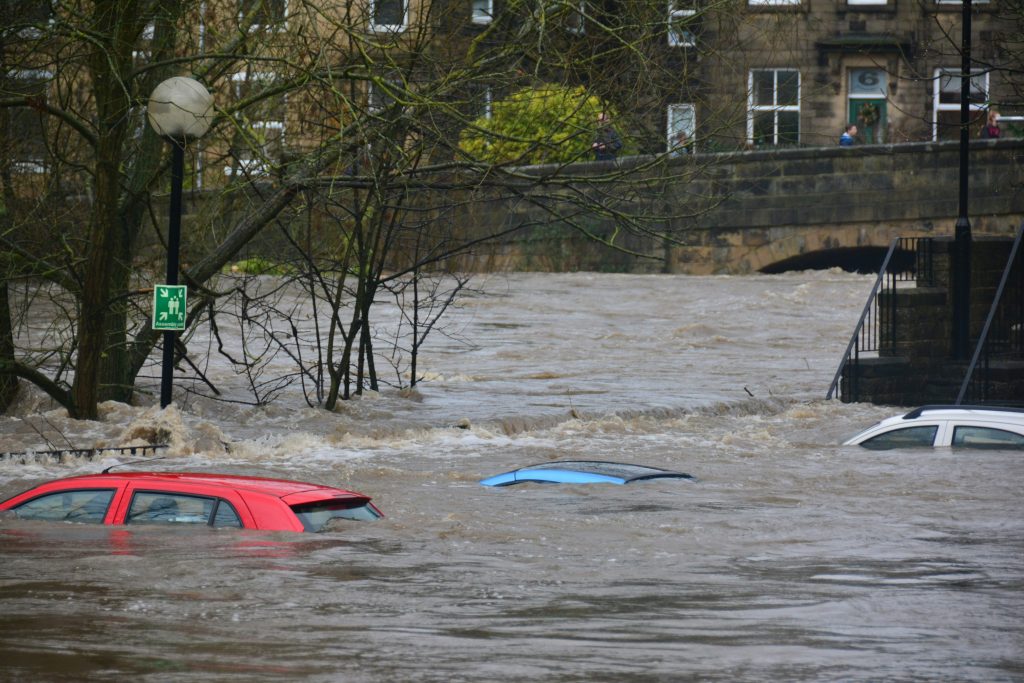We often speak of “natural disasters” as the floods, winds, fires and earthquakes that can wreak such great damage on our communities, seemingly at random. But in truth, disasters are never truly natural and they are less random than we realize.
Experts use the following as shorthand to demonstrate this notion that nearly all disasters – regardless of the event – are really man-made:
DISASTER = HAZARD + EXPOSURE + VULNERABILITY

This formula represents our understanding that DISASTERs are the consequences of these HAZARDS (like hurricanes and tornadoes) striking a community that is not adequately prepared and protected (EXPOSURE), containing a population that is at-risk (VULNERABLE).
What causes the hazard?
Natural processes are bound to occur – some more predictably than others. Climate change has had the unfortunate effect of making these occurrences much more severe and frequent – bigger hurricanes, heavier rainfalls, longer laster droughts, more frequent and intense wildfires
Why are communities ill-prepared?
Some have old infrastructure that is not optimized for the bigger storms. Some communities are built in high-risk areas like floodplains or contain man-made risks like chemical plants or nuclear reactors. And some simply have not created contingency plans.
Why are communities vulnerable?
Poverty is a major cause of vulnerability to disasters. Lack of adequate resources – from food to healthcare to education to finance – makes a community less resilient and more vulnerable. Very often, this scarcity is the result of policy decisions, of investment choices or even targeted exclusion of certain populations.
We’ve come to understand that nearly all disasters result in part from a decision society has made. Catastrophic earthquakes are partly the result of poorly built infrastructure, inadequate enforcement of code or even corruption. Devastating flooding can occur from bad land use policies, rapidly changing floodplains and misaligned incentives. Tornado damage can result from low-income communities being pushed into living in known paths.
As an agency, we need to decide how to respond to disasters. As a community, we need to decide how to prevent these man-made disasters from happening in the first place.
For more on this topic, a good place to start is the United Nations Office for Disaster Risk Reduction.


This website has quickly become my go-to source for [topic]. The content is consistently top-notch, covering diverse angles with clarity and expertise. I’m constantly recommending it to colleagues and friends. Keep inspiring us!
The breadth of knowledge compiled on this website is astounding. Every article is a well-crafted masterpiece brimming with insights. I’m grateful to have discovered such a rich educational resource. You’ve gained a lifelong fan!
Normally I do not read article on blogs however I would like to say that this writeup very forced me to try and do so Your writing style has been amazed me Thanks quite great post
Temp Mail Awesome! Its genuinely remarkable post, I have got much clear idea regarding from this post . Temp Mail
Wow amazing blog layout How long have you been blogging for you made blogging look easy The overall look of your web site is magnificent as well as the content
Blue Techker Good post! We will be linking to this particularly great post on our site. Keep up the great writing